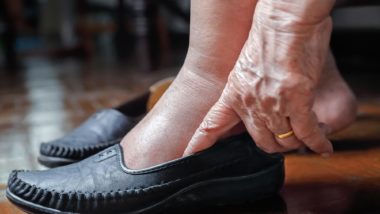Top Class Actions’s website and social media posts use affiliate links. If you make a purchase using such links, we may receive a commission, but it will not result in any additional charges to you. Please review our Affiliate Link Disclosure for more information.

Actos (pioglitazone), first approved by the FDA in the 1990s, is indicated for the treatment of type-2 diabetes. It is part of a class known as “glitazones,” or thiazolidinediones (TZDs), which also includes Avandia (rosiglitazone) and Duvie (lobeglitazone, sold only in South Korea).
Although all drugs of this class have potentially serious side effects, bladder cancer risk appears to be unique to Actos.
In 2016, a company representative said, “Takeda is confident in the positive benefit-to-risk profile” of Actos, citing long-term observational studies that “found no significant increase” in cancer risks for patients taking the medication. Some patients disagree, however.
Actos, Cancer and More
Actos and other drugs of the TZD class are designed to make cells less resistant to insulin, which is what causes type-2 diabetes (as opposed to type-1, which is due to a non-functioning pancreas). These drugs target specific receptors, known as PPARs.
By “waking up” these receptors, TZD medications reduce the levels of fatty acids in the bloodstream, forcing cells to become more dependent on carbohydrates (specifically, glucose) for energy. Greater use of carbohydrates for fuel by cells has the effect of reducing blood sugar levels.
The association between Actos and bladder cancer was first reported by French researchers in June 2011.
While the immediate risk of developing Actos cancer was found to be relatively low, the drug appears to have a cumulative effect. In other words, the longer a patient takes Actos, the greater the chance that he or she will develop metastatic cancer of the bladder. That risk reportedly increases for patients who take Actos for 24 months or more, or 28,000 milligrams over the course of a lifetime.
In addition to the cancer risk, glitazone drugs in general have been linked to a higher risk of fractures of the arm, hand and foot in women. In 2007, Takeda acknowledged that Actos shared this side effect with Avandia.
Actos is also known to cause peripheral edema (fluid retention), which in turn can increase the risk of heart failure. Some patients have also reported suffering from cholestatic hepatitis after taking Actos. However, this condition reportedly clears up after the drug is discontinued.
Why Actos?
According to Canadian oncologist Dr. Laurent Azoulay of Montreal’s Jewish General Hospital, one reason that Actos cancer is a risk while Avandia is not may be because Actos targets two different cellular receptors, whereas Avandia works only on a single receptor. He believes the extra receptor targeted by Actos may play a role in the development of Actos bladder cancer.
The good news for patients is that today, there are many more options for diabetic treatment that were not available even a decade ago. Endocrinologist Dr. Kevin Pantalone told Health Day that “When these drugs [TZDs] were first approved in the U.S., they were one of the very few options we had.” These days, TZDs such as Actos are rarely prescribed. That said, it is inadvisable to discontinue a medication before consulting with your physician.
If you or a loved one took Actos and developed bladder cancer, you may qualify to file an Actos lawsuit and for an Actos settlement. Join this Actos lawsuit investigation by filling out the FREE form on this page.
ATTORNEY ADVERTISING
Top Class Actions is a Proud Member of the American Bar Association
LEGAL INFORMATION IS NOT LEGAL ADVICE
Top Class Actions Legal Statement
©2008 – 2024 Top Class Actions® LLC
Various Trademarks held by their respective owners
This website is not intended for viewing or usage by European Union citizens.
Get Help – It’s Free
Join a Free Actos Lawsuit Investigation
If you qualify, an attorney will contact you to discuss the details of your potential case at no charge to you.
PLEASE NOTE: If you want to participate in this investigation, it is imperative that you reply to the law firm if they call or email you. Failing to do so may result in you not getting signed up as a client or getting you dropped as a client.
Oops! We could not locate your form.












